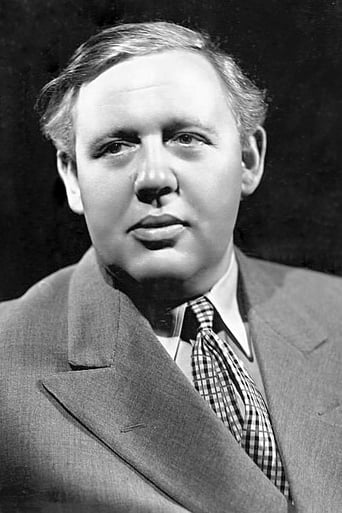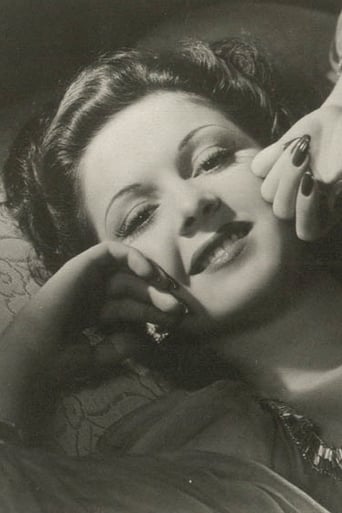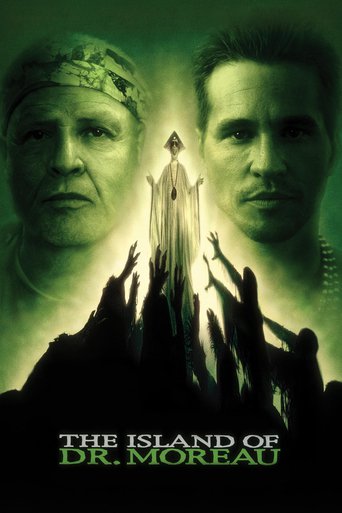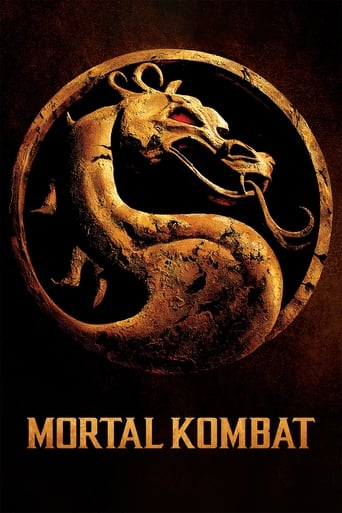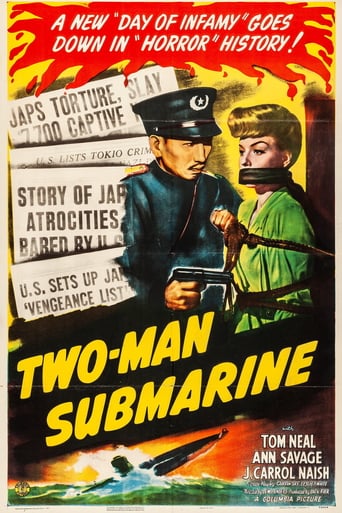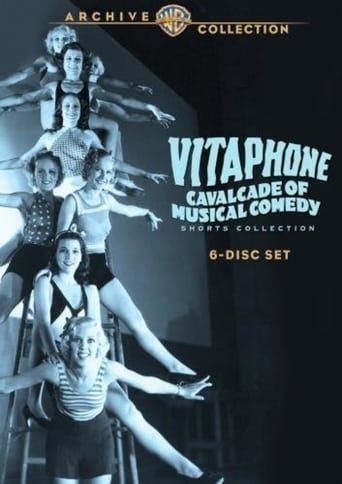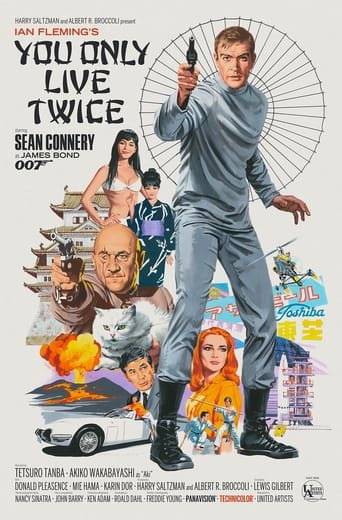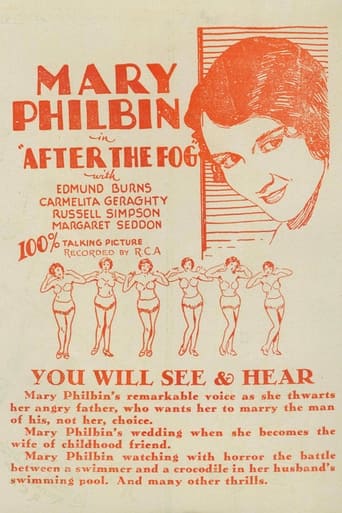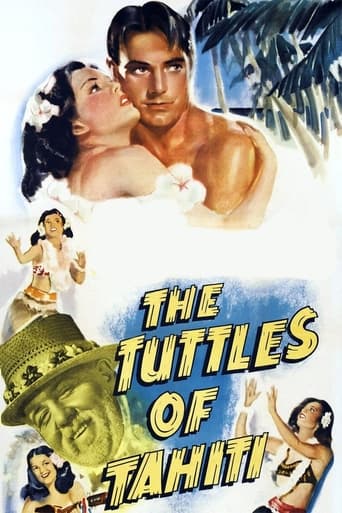

The Tuttles of Tahiti (1942)
After a long absense from the island, Chester Tuttle returns to Tahiti to find that little has changed. His large family, particularly his scheming Uncle Jonas, would rather dance and romance than earn a living. When Jonas loses the family plantation in a cockfight, Chester saves the day by towing in a large ship abandoned at sea and claiming the salvage. But opening a joint bank account in the name of the Tuttle clan may not have been a wise decision.
Watch Trailer
Cast
Similar titles
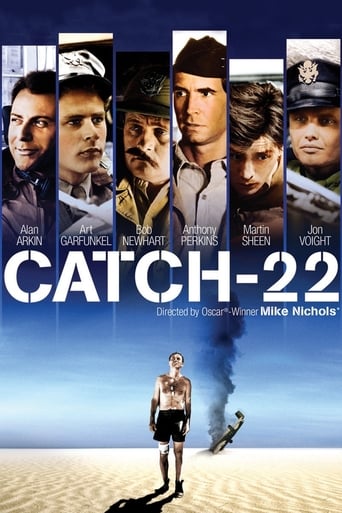
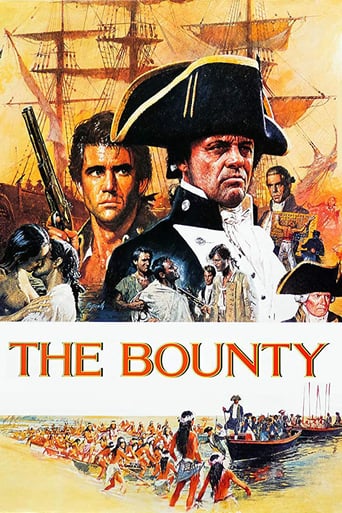
Reviews
It really made me laugh, but for some moments I was tearing up because I could relate so much.
Each character in this movie — down to the smallest one — is an individual rather than a type, prone to spontaneous changes of mood and sometimes amusing outbursts of pettiness or ill humor.
The storyline feels a little thin and moth-eaten in parts but this sequel is plenty of fun.
The film never slows down or bores, plunging from one harrowing sequence to the next.
If Pacific Islanders can be considered a race, and in some questionnaires they seem to be, then The Tuttles of Tahiti may be considered a pioneering (for its time) film representation of a racially integrated family. But there's not a bit of preaching to shove race mixing down anyone's throat. The Tuttles are naive and incompetent in their attempts to maintain financial solvency. They are also materialistic and fun-loving. The clan's females are impressively hip-swinging in dance, and the males offer seemingly authentic Polynesian grunts to the music. Charles Laughton is, of course, an acting genius as the doltish elder on whom dozens of family members depend for leadership. His spectacular failures are the stuff of which this charming comedy is made. I first saw this film when it was released in 1942, when I was 14 and too young to appreciate its subtle qualities. (After all, Lost Horizon author James Hilton was one of the writers.) But seeing it again at age 89 was a fulfilling experience. Nobody makes movies like this anymore, so we've got a special gem here.
As the result of an exchange deal, director Charles Vidor found himself working at RKO on the Lewis Meltzer-Robert Carson screenplay of James Hilton's adaptation of Nordhoff and Hall's novel, No More Gas, - a title which was changed to The Tuttles of Tahiti (1942).For several generations, the Tuttles, once of New England, have been vegetating with a vengeance under softer skies. Impecunious, irresponsible and amazingly prolific, these quasi-Polynesians are a problem to the community, but a constant source of amusement to themselves. They have also amused even a hardened critic like me. Sol Lesser's production is a minor field day for Charles Laughton, who obviously enjoys disporting himself as the sloppy, whimsical Jonas Tuttle of this Tahitian Tobacco Road. His best scene: Bug-eyed over the neat, crisp 400,000-franc salvage check in his trembling hand, he asks huskily, "Do you think it would be all right if I fold it?"There are some beautiful shots of a storm and a hilarious wedding party. But all in all, instead of a glamorous Hollywood Tahiti, director Charles Vidor shows us a cheap, realistic South Seas locale that would astound the grass-skirt hula school. Although fondly remembered as one of Laughton's most beguiling characterizations, The Tuttles of Tahiti seems to have slipped off the planet. Only six reviews here at IMDb, and this will make seven!
With the 1939 adaptation of The Hunchback of Notre Dame being one of my favourite films,I keep a look out for lesser-known Charles Laughton movies appearing on TV. Checking what films were about to be taken off BBC iPlayer,I was delighted to find an obscure Laughton title,which led to me getting set to meet the Tuttles.The plot:Returning home from the high seas Chester Tuttle finds that his family has not changed one bit,with his dad Jonas still borrowing money from Dr. Blondin. Wanting help his family out,Chester gets a fighting chicken to take part in rooster fights. Believing that Tulltles are onto a winner, businessman Jensen gets Blondin to transfer the debt,which leads to Jensen writing a mortgage for the family,and putting all his savings on them winning. Going to the fight confident,the Tuttles are taken aback when the bird flies off from the match,and takes the roof above their heads with it.View on the film:Joining Chester on his return to the family,director Charles Vidor & cinematographer Nicholas Musuraca melt light Comedy with an Adventure atmosphere baked in scorching hot light beaming down on each of the Tuttles get rich quick adventures. Disappointingly making a $170,000 loss, Vidor elegantly displays the lavish treats of the Tuttles,with Vidor wisely trimming the most negative aspects (such as the rooster fighting) down.Landing from the pages of Charles Nordhoff and James Norman Hall's book No More Gas,the screenplay by Lewis Meltzer/Robert Carson and James Hilton smoothly make the Tuttles rush for cash one that heightens the Adventure mood,via each attempt to pay Blondin leading to a new "adventure." Despite the threat of homelessness being something that most folk would take seriously,the writers impressively find paths to keep the easy-going Comedy breezy,by giving the exchanges between the Tuttles a Screwball Comedy zest. Made when Hollywood was a lot less racial/culturally sensitive, Charles Laughton gives a great performance as Jonas,thanks to Laughton giving Jonas a hilarious gruffness,as the people of Tahiti welcome another member of the Tuttles in.
This film has two of the great ones, Charles Laughton and Florence Bates. She was one of the great character actors and he was just great. However, when you add a Nordhoff and Hall story to the mixture, you get a delightful story about a ne'er-do-well dreamer whose sons salvage a ship and Papa, Laughton, spends the prize money. I especially loved it when Papa Tuttle has spent all the money and gets a note from the bank that he's overdrawn and sends one of his kids with a check to cover the checks he's been writing. How many times have we all wanted to do that? The story is a bit too romantic and commonplace for today's audiences who demand slice 'n dice bloody scenes along with spectacular eye-dazzling effects. It's still a wonderful tale and has a great deal of charm about a lost time and place before it all turned to modernity. If that sounds too maudlin or nostalgic, I guess that's just how it is. Check it out. Bates and Laughton are great as is Hall out of his usual sarong roles with Dottie Lamour.
